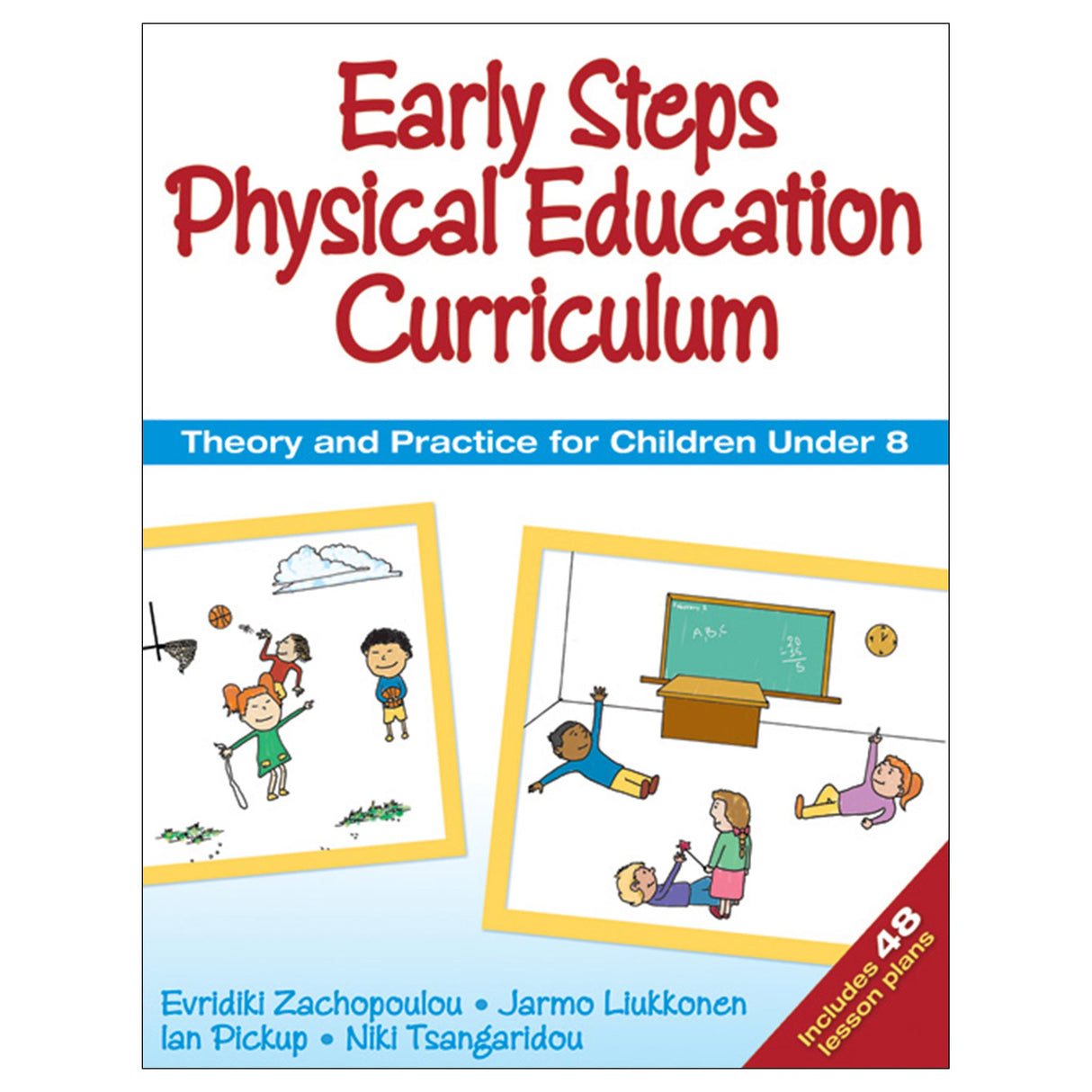Early Steps Physical Education Curriculum
$19.00 CAD
Four top educators from Scandinavia, Greece, Cyprus, and the United Kingdom help you understand ways to promote children’s learning and enhance their intrinsic motivation to be physically active. The authors explore pertinent topics for teachers:
- Child-centred teaching methods
- Behavior of effective teachers
- How to develop intrinsic motivation through physical education
- Curriculum standards with goals and objectives describing what children have learned after lessons are implemented
Each lesson plan has specific goals and objective to be achieved, offers specific points of emphasis to consider as you implement the lesson, and comes with ideas for modifying it according to the children’s needs. These ready-to-use lesson plans provide an instant framework for creating a new program or updating and fortifying your existing program.
Early Steps Physical Education Curriculum offers a top-notch curriculum, well-researched information and instruction, and engaging and fun games that help children develop social skills and acquire a basic knowledge of what it means to be healthy and active as they continue to grow. It’s a great resource for teachers, students, child-care professionals, and all those who work with preschool children or who train those who will work with preschoolers.
Audience
A reference for professionals working with preschool children and a text for future professionals.Evridiki Zachopoulou
Alexander Technological Educational Institute of Thessaloniki, Greece
Ian Pickup
Roehampton University, United Kingdom
Part I: Basics of an Early Childhood Physical Education Curriculum
Chapter 1. Early Childhood Physical Education in Europe
Arja Sääkslahti
University of Jyväskylä, Finland
Jarmo Liukkonen
University of Jyväskylä, Finland
Variations in Institutional Structures
Physical Education in Early Childhood
Societal and Environmental Challenges
Conclusion
Chapter 2. Teaching Methods
Ian Pickup
Roehampton University, United Kingdom
Need for Child-Centred Teaching Methods
Starting From the Child
Selecting What to Observe
Acting on Observations
Teaching Styles to Promote Learning
Using Group Work
Chapter 3. Teacher Behaviours
Niki Tsangaridou
University of Cyprus, Cyprus
Characteristics of Effective Teachers
Essential Instructional Strategies for Teaching Physical Education
Conclusion
Chapter 4. Promoting Children’s Sound Personality Development and Intrinsic Motivation Towards Physical Activity
Jarmo Liukkonen
University of Jyväskylä, Finland
Social Development Through Physical Education
Development of Intrinsic Motivation Through Physical Education
Motivational Climate in Physical Education
Chapter 5. Early Steps Physical Education Curriculum Standards
Jarmo Liukkonen
University of Jyväskylä, Finland
Standard 1
Standard 2
Part II: Implementing the Early Steps Physical Education Curriculum
Chapter 6. Social Interaction Lesson Plans
Chapter 7. Healthy Behaviour Lesson Plans
Chapter 8. Evaluation Methods
Vasilis Grammatikopoulos
University of Thessaly, Greece
Evaluation in Education
Evaluation in Early Childhood Education
Evaluation Objects, Goals, and Criteria
Programme Evaluation in Education
Systems Approach Evaluation
Practical Applications and Forms
Appendix: Description of the Early Steps Project
Evridiki Zachopoulou
Alexander Technological Educational Institute of Thessaloniki, Greece
Index
About the Authors
About the Contributors





